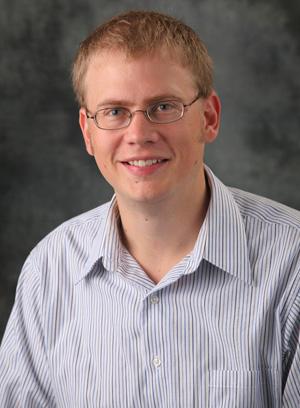
By Micah Kiel
(This speech was delivered to the graduating high school seniors at St. John Vianney Parish in Bettendorf.)
From May 13-23 I was in Athens, the capital of Greece. I received funding to go and research the possibility of a study abroad program there for St. Ambrose University. Aside from my guilt at leaving my wife with two unruly kids for 10 days, I was quite excited about this trip. I studied in Athens while in college, and it was a transformational experience for me.
Athens is the embodiment of chaos. Exhaust, loud horns, people shouting, and bustling crowds slap visitors in the face. The layout of its streets is equally chaotic. No street is straight; none of them meet at right angles; the names change from block to block. The city is a tangled mess in which it is very easy to get lost. When I was there, my friends and I came up with a saying: “in Athens, every street leads to another street.”
What I realize better today is that this is quite an appropriate metaphor for what life is like. Our lives do not unfold in straight lines. Episodes and our various experiences do not meet at right angles. Our lives unfold as a complex, chaotic web of experiences like the streets in Athens. Some streets, like some experiences, are broad and beautiful. We want to linger in the cafes that line them. Some, on the other hand, are dimly lit, dangerous and scary. These we scuttle through as quickly as possible. Life doesn’t get easier. It only gets more complicated. It does, however, get more interesting.
Sticking with the Greek theme, the philosopher Aristotle said, “The unexamined life is not worth living.” This statement seems more true to me every day. I teach a lot of freshman, and they are wonderful: hard working, smart and interesting. The one thing that I most often find frustrating about my students is apathy — a lack of engagement with themselves and the world around them. We might be talking about a very interesting problem relating to a specific biblical text while I excitedly jump around, shout and wave my arms, and when I look out at the class they’re just sitting there.
To me, this is unfortunate. I encourage you to follow Aristotle’s creed. Don’t be afraid to ask questions. Don’t be afraid to think for yourselves about what happens to you, about what is going on in the world. Don’t be passive. Life is most enjoyable when you are willing to risk reflecting on it. It is scary. You risk being disappointed and let down. But, at the same time, you open yourself up to reflection, interaction and, most importantly, growth.
Still sticking with the Greek theme, an even earlier Greek philosopher, Heraklitus, said, “you can’t step into the same river twice.” This also is very true as a description of what life is like. Life is constantly changing, and so are we. If you return to a river, neither the river nor yourself will be the same. My first visit to Athens, 15 years ago, changed my life, and part of me is terrified to return. I am not the same as I was then. I have a wife, two kids; I’ve learned four dead ancient languages, and I have a job, a mortgage and a car payment. I don’t know what I am going to find, because life doesn’t play out in linear, predictable patterns. Like the map of Athens, it is more chaotic, unpredictable and disjointed than that.
Finally, though I am a professor of theology at a Roman Catholic institution, I have not mentioned God or the Church once in this reflection. My scholarly expertise is in the study of the Bible, and one of the things I have found as I continue to read and study it, is that the journey of faith is not all that dissimilar from the chaotic map of Athens. The history of God and God’s interaction with humanity is similarly disjointed, episodic and unpredictable. It’s not always readily apparent if God has a plan for our lives and, if God does, the plan is not usually neat and tidy. What I can tell you is that God has chosen to be in relationship with human beings, and taking advantage of that will lead you on roads, alleys and paths that are unpredictable and unknowable.
By being aware of yourselves, self reflective, and knowing that both you and your life are constantly changing, you can embrace the chaotic web of experiences that make up your life. The streets of Athens taught me that there is no such thing as a dead end. Every street leads to another street. We don’t know what it will be like, whom we will meet, or what will happen. Thinking about life and God this way, embracing complexities and ambiguities, can make our Church and our society better by filling it with people who are reflective, self-aware individuals.
(Micah Kiel is an assistant professor of theology at St. Ambrose University in Davenport.)








